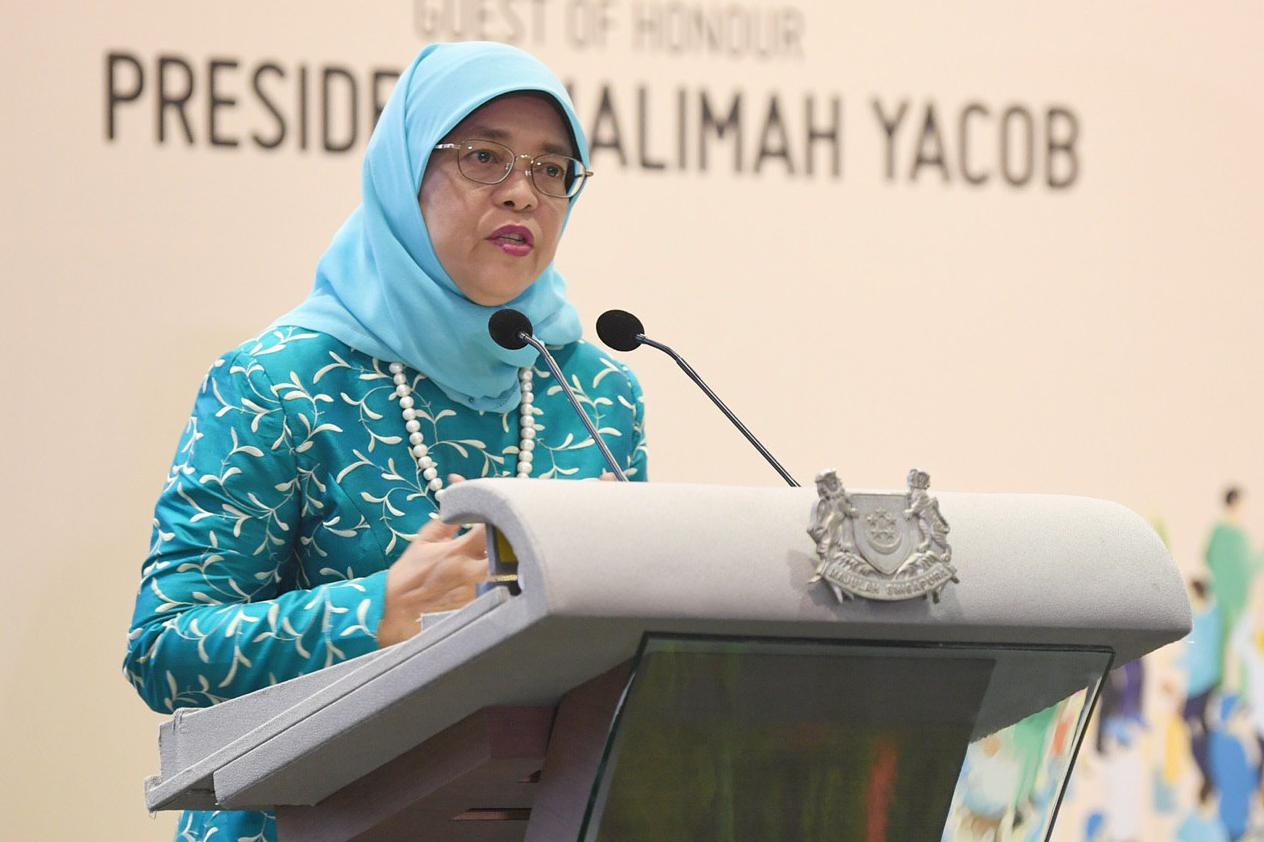President's Challenge 2019 launched with focus on mental health
Sign up now: Get ST's newsletters delivered to your inbox

President Halimah Yacob speaking at the opening ceremony of Singapore Mental Health Conference 2019 and launch of the President’s Challenge 2019.
ST PHOTO: KHALID BABA
Vanessa Liu
Follow topic:
SINGAPORE - When fishmonger Li Hee Meng closed down his business, handed down from his parents, 10 years ago because it was not doing well, he sank into depression and remained unemployed for about eight years.
In 2016, he was admitted to the Institute of Mental Health (IMH) and was treated as an inpatient for the next two years for schizophrenia.
In October 2018, Mr Li was referred to the Singapore Anglican Community Services (SACS), where he was trained for two months in the cafeteria on food preparation, dishwashing and cleaning. Thereafter, the centre secured him a part-time position as a kitchen helper at IMH's canteen and he worked there for six weeks.
The 52-year-old started full-time work as a store assistant at Prime supermarket two weeks ago and said he was satisfied with his new job.
He said in Mandarin: "I do shelving and stock-taking. After Chinese New Year, they will teach me how to order stocks from the suppliers."
Mr Li is one of the 50 or so people with mental health issues who have benefited from SACS's Transitional Employment and Work Integration Programme (TEWIP). The programme seeks to provide them with on-the-job training opportunities within the centre's internal units and social enterprises, so that they can be ready to re-enter the workforce.
TEWIP is one of the 11 programmes supported under the Empowering for Life Fund (ELF) this year. The programmes are aimed at aiding those at a disadvantage including people with disabilities, children with special needs and disadvantaged women.

TEWIP was highlighted by President Halimah Yacob in her address at the launch of the President's Challenge 2019 at Expo on Wednesday (Jan 30).
The launch was held in conjunction with the opening of the fifth edition of the Singapore Mental Health Conference (SMHC), jointly organised by IMH, the National Council of Social Service (NCSS), Agency for Integrated Care and Health Promotion Board (HPB).
President Halimah, who was the guest of honour at the two-day event, said that ELF programmes support vulnerable groups by equipping them with the necessary skills and resources to proactively solve problems, develop resilience in overcoming life's challenges and contribute meaningfully to society.
The ELF was first set up under the President's Challenge in February last year to support programmes that empower vulnerable individuals through skills upgrading, capacity building and employment.
Madam Halimah said that the ELF will fund each approved project for up to three years from 2019, instead of the initial one year. She expressed the hope that the certainty of funding over a longer period of time will encourage volunteer welfare organisations to be open to trying out new approaches to support the vulnerable among us.
The 2016 Singapore Mental Health Study showed that one in seven adults had experienced a mood, anxiety or alcohol use disorder at some point in their lifetime and about three-quarters of these people did not seek help.
"This year, by spotlighting on mental health, I hope that we as a community are more aware of the needs of persons with mental health conditions and can better support them in their journey of recovery and reintegration. I hope that President's Challenge 2019 can bring about new programmes and approaches to help this group of individuals as well as their caregivers," said President Halimah.
President's Challenge 2019, which focuses on mental health, will be raising funds for 67 organisations spanning a wide range of service sectors.

